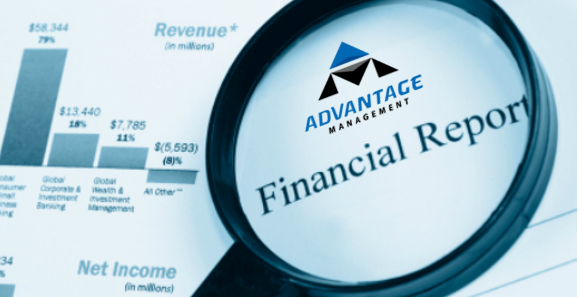Any accountant will tell you that proper reporting and understanding of said reporting is absolutely necessary to run a successful business; this is also true for homeowner and condominium associations. Board members, need to pay close attention to their association’s monthly financial reports. Generally accepted accounting principles require certain financial reports for your HOA on a monthly basis, such as:
- The Balance Sheet: A balance sheet is a report that gives the association’s financial condition. A comparison of the assets of the association minus the liabilities gives the association the net worth. This is the report that shows how much money is actually in the association’s bank account. The idea behind your HOA’s balance sheet is that it should always balance, with no exceptions.
- Statement of Income and Expense: The statement of income and expense is probably the most important management tool available. This report contains the actual amount spent for the month, compared to the budgeted amount for that month. It also displays the difference between these two amounts. Additionally, the year-to-date numbers are also accounted for on this report. Overall, this report gives a snapshot of where your HOA is money-wise, for the month and for the year. Board members can use this report to determine if there are any categories that need to be worked on or fixed, as well as to plan for future expenses.
- General Ledger: The general ledger contains the accounting record for each transaction in numerical order (chart of accounts) and occurrence (date order). This accounting tool gives your HOA and community manager detailed information tracking the financial transactions for the association.
- Cash Register: The check register informs your board members of checks written. The register should contain information relating to who the check was written to, the check number and date written, the invoice number, a chart of the account and description of the expense, an accounts payable report, and an account delinquency report.
- Accounts Payable Report: Finally, the accounts payable report refers to unpaid expenses, and informs the association of expenditure obligations incurred in the current month, while the account delinquency report refers to the accounts receivable and provides the association with a list of members not current on their assessment obligations, late fees, deed restriction fees, and legal fees, etc.
All of these reports are needed to understand the money that is coming in and out of your HOA’s accounts. These reports also keep your associations running smoothly and help when determining a budget for the next fiscal year.


Recent Comments